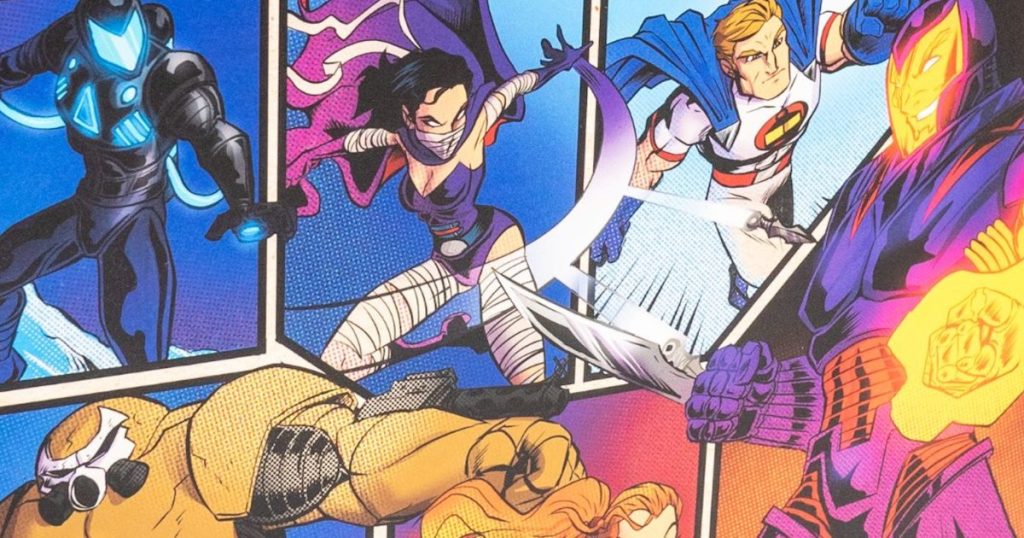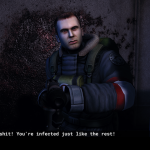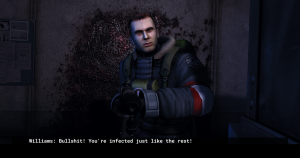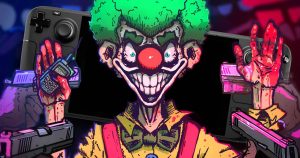
Greater Than Games founders Christopher Badell, Adam Rebottaro, and Paul Bender first brought up the idea of a new version of their hit cooperative superhero comics card game Sentinels of the Multiverse in a hotel room at PAX West in 2019. The 10th anniversary of the game that started their company in 2011 was approaching, and Rebottaro, who did all the card art, wanted the chance to show off how his style had evolved. A reprint with new artwork seemed simple enough, but writer and designer Badell wanted to revise the flavor text to go with the new images. Also, he wanted to make the rules clearer, and maybe rebalance some characters, and improve the quality of the game’s tokens.
The team didn’t spend much time on the convention show floor, instead turning the window in their hotel room into a whiteboard. Their original game had ended its run in 2016 with the set OblivAeon, a reality-hopping adventure similar to DC Comics’ Crisis on Infinite Earths. In retrospect, Badell says, it was inevitable that Sentinels of the Multiverse would follow the same trajectory as the comics it emulated by rebooting.
Sentinels of the Multiverse: Definitive Edition was released in 2021, improving on nearly every aspect of the core game. It was followed by 2023’s Rook City Renegades, an update of the original game’s first expansion, Rook City, and the project will continue in 2025 with the release of the world-hopping expansion Disparation.
“The biggest mistake I made in 2010 when I sat down to write Sentinels of the Multiverse was not having a decade of experience writing Sentinels of the Multiverse,” Badell jokes. “I would have written a way better game in the first place. That’s on me.”
This week on Polygon, we’re exploring how superheroes are dominating not just comics and movies, but all media, in a special issue called Superculture.
Sentinels of the Multiverse first captured a following at a time when cooperative games were experiencing a renaissance thanks to titles like Pandemic and Space Alert, charting a course independent of licensed competitive superhero games like HeroClix. The game took on new popularity as the Marvel Cinematic Universe took off, allowing players to tap into their fantasies of playing characters reminiscent of heroes like Luke Cage and Doctor Strange and battle enemies akin to Kingpin or Ultron.
“It’s super fun to feel like a superhero and have all these cool powers and abilities and things you can do, except the villain is even scarier and we can’t possibly take on the villain unless we’re all working together,” Badell says. “Also we’re doing it in a weird, strange environment that’s going to change the course of the fight one way or another.”
Forming teams of two to five heroes to fight a supervillain in settings ranging from the ruins of Atlantis to the crime-ridden streets of Rook City gives Sentinels of the Multiverse a huge amount of replayability, but also makes the game complex to the point that it can be hard to remember all the rules. Badell admits when he plays he often acts as the game master and runs the villain and environment to allow the other players to just focus on their heroes. The new version makes it easier by having color-coded keywords to remind players when an effect happens.
Decks have also been revised to ensure that luck doesn’t get in the way of a good play experience. Heroes who rely heavily on getting specific cards in play, such as the Batman-like Wraith, have more ways to search their decks and get them on the board. There are also new challenges, like a “suddenly” mechanic that requires a card to be played as soon as it’s drawn, which can represent a character losing control of their powers or even a ninja ambush.
“It’s such a cool new tool that can give the feeling of compulsion or fear while this character takes the spotlight with their own personal problems,” Badell says.
Even more than it’s a superhero game, Sentinels of the Multiverse is about superhero comics. Badell jokes that he and Rebottaro “are cosplaying as if they’re making comics,” chronicling decades of Sentinels Comics history over the course of distinct eras and styles in their art, flavor text, and the Letters Page podcast they launched in 2017. That interest in the evolution of heroes is at the forefront of Sentinels of the Multiverse: Definitive Edition, where every hero has both a version in a modern art style and a “first appearance” version dating back to the golden age of comic books with its own look and style. Their evolution can be seen throughout a hero’s deck of cards, with references to numerous different comic lines that Badell and Rebottaro have made up.
“We work hard to make it feel like it’s being created by many people, but it’s being created by two people,” Badell says. “There will be a story happening in Megalopolis and here come the cops to help us, and then next week I’m telling a story in Rook City and all the cops are bad. I like all those tone switches, but it makes me lose my mind.”
Episodes of the podcast offer deep dives into different heroes, villains, and comic book events, and the way fans have reacted to them helped inform what made it into the new version of the game. Badell loved Werewolf by Night, but says his decision to add the werewolf hero Alpha to Rook City Renegades was more informed by interest in werewolves when he discussed their origins along with other supernatural elements from Sentinel Comics, like the vampires of the Court of Blood.
“This is my life’s work and I have no regrets, but it’s definitely weird”
“We have a super cool, excited fandom that gets super into the stuff we talk about and I really appreciate that,” Badell says.
The new version also takes inspiration from Sentinel Comics: The Roleplaying Game, which Greater Than Games launched in 2021. The RPG evokes the feel of stakes ratcheting up as a fight goes on by allowing characters to unlock more powerful abilities when they’re injured. That same mechanic is central to a new version of the angelic warrior Fanatic, who can actually start the game at critically low health, allowing her to fully unleash her religious fervor.
“I played around so many times with finding some way to reduce her power level slightly without making her too vulnerable,” Badell says. “She’s slightly too powerful, but it’s so dang cool and that’s fine in a cooperative game.”
While the backs of the cards of each deck originally just showed generic comic panels and the name of the hero, the new versions use the space to provide a bit of their backstory. Bunker is seen signing up for the Army, driving a tank and stepping into his armored suit. The back of the deck for the speedster Tachyon shows the super-scientist Meredith Stinson at work and embracing her girlfriend, Dana Bertrand. Badell concocted a whole history for their relationship leading up to a big wedding issue.
“Sentinels Comics is like, ‘There’s definitely no queer stuff going on,’ but the writers are just going to sneak this in here,” Badell says. “They were ‘roommates.’ The fandom decided their headcanon and a decade and a half later those audiences are the writers of the comics. There was subversive stuff in the comics happening before it was mainstream.”
Greater Than Games plans to continue revising the game through a new version of OblivAeon, but Badell’s not sure what’s next after that.
“This is my life’s work and I have no regrets, but it’s definitely weird,” Badell says. “I don’t know what the future could possibly hold for me, but we’re thrilled to be doing it and it’s amazing that anybody is interested in the thing we’re doing.”
















